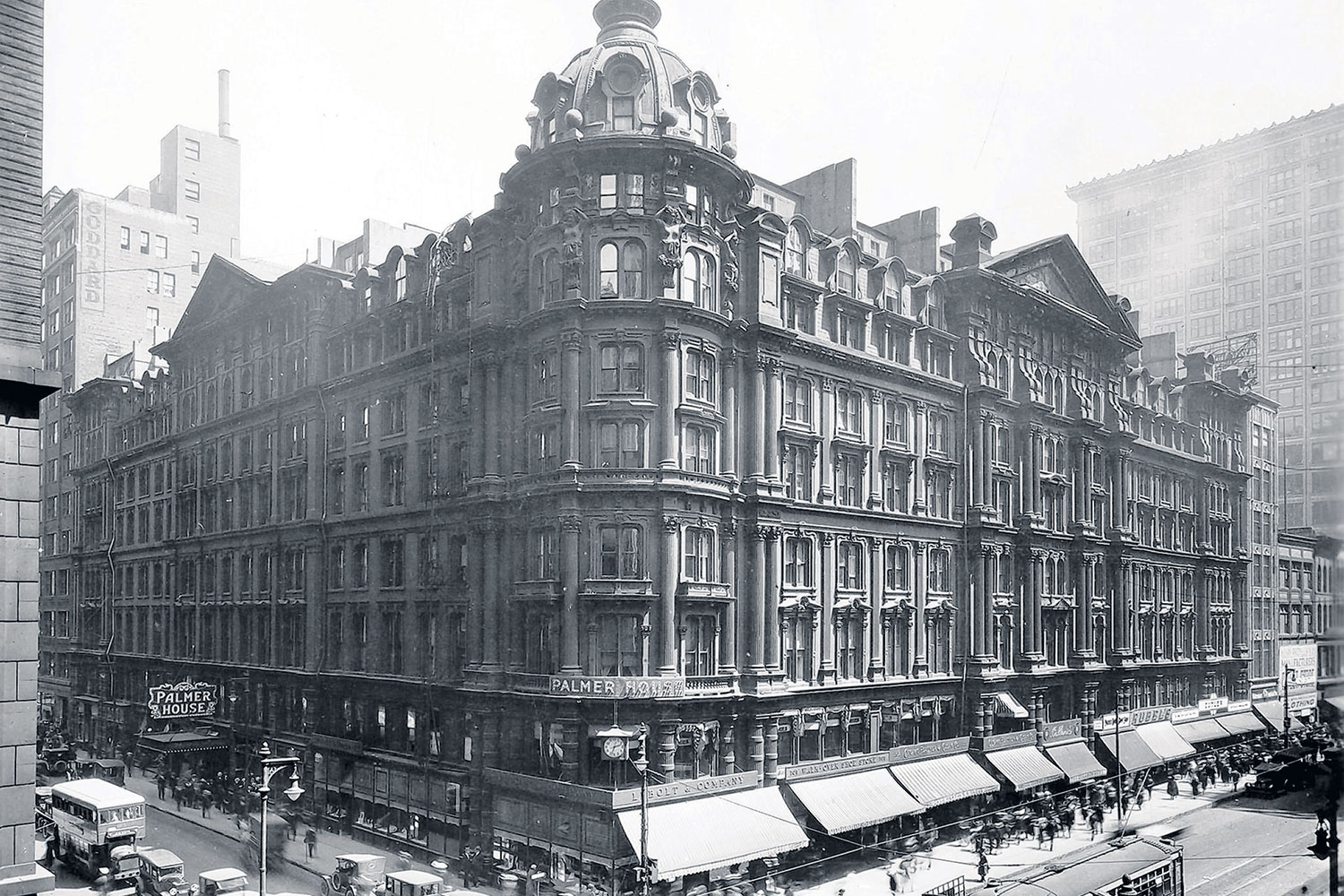The handsome young traveling salesman was 28 years old, but had already been married five times, leaving behind children in Missouri and Texas. Finally, though, he seemed ready to settle down. In 1943, he married a nurse from Arkansas — seven months before his divorce from his fourth wife was final, making him a bigamist. He had remained with her for three years, longer than any of his previous romances. After getting out of the army, he found a job as a heavy equipment salesman with the Manbee Equipment Company in Chicago, to support his wife and the children they were hoping for.
In the winter of 1945, the salesman brought his bride to their future hometown. As a country girl, she found Chicago “as alien a place as I had ever visited…This city was much different than New Orleans — noisier, more people crowded together, taller buildings cold.”
At first, the couple lived in the Sherman Hotel, in the Loop, while the salesman worked the highways of Illinois and looked for a place to live — not easy in the postwar market, with thousands of servicemen returning home. There was plenty the country girl didn’t like about Chicago — being cooped up in an apartment, the “bitter cold,” the soot from chimneys and furnaces that stained her dresses. But she loved her husband, so she tried to find something to love about this big town where he was planning to move them. She found it at Marshall Field’s.
Marshall Field’s “was truly amazing,” she would write in her autobiography, decades later, after she and the son she was carrying both became famous. “The store was gigantic, with high, high ceilings and chandeliers, and I remember how smartly my heels would click on the marble floors. I was especially astonished at the makeup counters, which seemed to take up the entire first floor. There was every name, every brand you could think of, and somebody behind each counter to help you try makeup on. When I die, if I open my eyes and I’m standing in the middle of Marshall Field’s makeup department, I’ll know I made it to heaven.”
She was a good-time girl, so she also loved Chicago’s nightlife — the jazz clubs with “some moody saxophone playing ‘Laura’ or ‘For Sentimental Reasons.’” At Christmastime, the city was “a wonderland, with all the snow and the bright lights and the people scurrying from store to store to do their last minute shopping. There were times that holiday season, when I felt like life had become a movie, and I was the star.”
They found a bungalow in Forest Park, but the owners weren’t ready to move out. She was experiencing severe morning sickness, so she suggested to her husband that she go back to her parents’ house in Arkansas until the house was ready. Before she left, they spent a night out at the Palmer House, where the only existing photograph of the couple was taken.
By May, the house was ready. The salesmen furnished it, then drove to Arkansas to fetch his pregnant bride, so they could begin their family life in Forest Park. He never made it there. On Highway 60, outside Sikeston, Missouri, the right front tire of his 1942 Buick blew out on a wet road. The salesman was thrown into a three-foot-deep drainage ditch, where he drowned. When the searchers found his body, his hand was gripping a branch above the waterline.
Three months later, the salesman’s son was born — not in Chicago, as he had intended, but in his mother’s hometown of Hope, Arkansas. His mother, Virginia, named him William Jefferson Blythe III, after his late father. When his mother remarried, to an auto dealer named Roger Clinton, the boy adopted his stepfather’s last name.
“I used to joke with Hillary that if my father hadn’t lost his life on that rainy Missouri highway, I would have grown up a few miles from her and we probably never would have met,” Bill Clinton wrote in his autobiography, My Life.
We’re so used to thinking of Bill Clinton as a skirt-chasing, barbecue chomping good ol’ boy from Arkansas with a Southern accent that it’s hard to imagine him as a skirt-chasing, Polish-sausage-eating Grabowski from Illinois with a Chicago accent. But that’s what he would have become, had the tire on that 1942 Buick not burst. That automobile accident changed the course of American history. Obviously, Bill would not have become president if he hadn’t met Hillary: she was the brains of that political partnership, and he was the heart. (“I have to kick his ass every morning,” she said of her husband.) Growing up in the most competitive political environment in the nation, Forest Park Bill would not have advanced as quickly to higher office as Hot Springs Bill, who was handed the governorship at 32 after coming home with a Rhodes scholarship and a Yale Law degree. Those qualifications are more impressive in Arkansas than Illinois. That’s assuming he went into politics at all. He might have become a salesman, like his father. He’s certainly charming and persuasive enough. As a Florida newspaper once wrote, “Bill Clinton could sell snowmobiles to Miamians.”
With no President Bill Clinton, there would have been no Hillary Clinton for president campaign in 2016. Perhaps Joe Biden would have been the Democratic nominee, and beaten Donald Trump four years earlier. So much in American politics might be different now, if a salesman had made it from Chicago to Arkansas 78 years ago.



